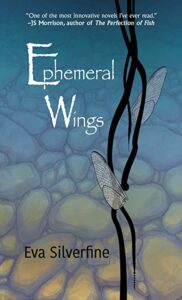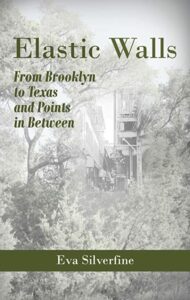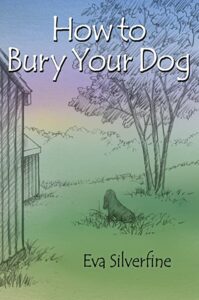Connecting with Nature: An Interview with Eva Silverfine
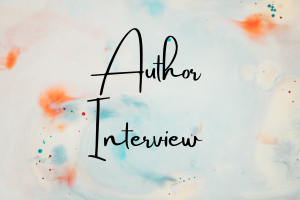
I first came across Eva Silverfine when I joined a Facebook group connected to our mutual publisher. At that time, she was getting ready to release her first novel, How to Bury Your Dog. I was thrilled when she asked about an interview to help celebrate the release of her second novel, Ephemeral Wings. Eva’s work focuses on nature and the environment but also threads in relationships and fantasy, depending on the work. She’s also the author of the essay collection, Elastic Walls: From Brooklyn to Texas to Points In Between. IndieReader wrote of her second book: “Eva Silverfine’s Ephemeral Wings delights as it teaches about ecology and the impetus of following one’s natural instincts through the luminous story of a lovable mayfly nymph.” And Readers’ Favorite said, “Ephemeral Wings tells one of the most meaningful stories I have ever read, and I have to say I was deeply impressed.” Eva is pretty humble, but I’m certain that praise is making her smile. She’s a woman on the go with a whole host of interests, so I’m thankful she found the time to answer my questions.
Christina: Your second novel, Ephemeral Wings, released last October. It’s unique in that it tells the story of Maggie, a mayfly. who is “navigating her path through a complex world,” which is a stream. What is it about a mayfly that prompted you to write about it?
Eva: This novel was conceived when I was a graduate student studying stream ecology, and my own thesis research focused on mayflies as a study organism. Mayflies appealed to me for their apparent ephemeral nature—although they are maturing in the stream over the course of the year, their adult, winged stage is very brief. This aspect of their biology is central to the perspective of the protagonist, Maggie, and lends itself as a metaphor for our own lives.
Christina: All of your work features nature and ecological themes. What about those topics compel you to write about them. Is it easier to write fiction or nonfiction?
Eva: Although I grew up in a city (New York), from a young age I was drawn to the natural world, in part thanks to the Brooklyn Botanic Garden and my family’s annual camping trip. I also came of age at the wakening of an environmental movement. So protection of the natural environment and recognizing its importance to our own health and welfare has been a focus for me much of my life. In my writing I have wanted to bring the importance of our connection with nature, seeing ourselves as part of instead of outside the natural world, to my readers.
As to fiction versus nonfiction—my nonfiction is in the form of personal narratives, and I have a collection of these entitled Elastic Walls. Writing those narratives was much like writing the short stories (flash fiction) I write—because of each piece’s brevity, I have to remain focused on the central point/theme of the piece and winnow away the meanders. However, my style tends to be sparse, and I do think that comes from reading/copyediting a lot of science.
Christina: Regardless of genre, what elements do you think make for a great story?
Eva: Goodness, sometimes a good story seems like magic—how did the author bring together all those elements and make them work together seamlessly? When I really like a book there are three major components that have come together—an engaging story line, interesting characters, and good writing. In addition to that, some intellectual depth appeals to me. All these elements “work” in service to the story—this doesn’t exclude tangential side stories or themes, but even these function in service to the overall work. A good story leaves one thinking. A good story takes one to a place/perspective, foreign or familiar, and leaves one with more than with what one arrived.
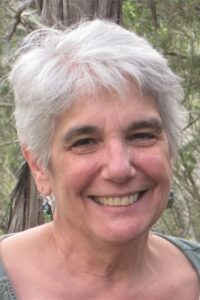
Christina: As you mentioned, you studied stream ecology as a graduate student. For those of us who might not know, what does that all entail? Have you always been interested in that branch of science? Do you see a parallel between science and writing?
Eva: Stream ecology is a broad category; as with all ecology, it covers the dynamics of organisms with their nonliving and living environment, the latter including both other members of the same species and members of other species. My interest during my degree work was in behavioral ecology—what organisms can perceive about their environment and how they respond to that information. This area was all rather theoretically based. And yes, ecology was always my interest within biology, and I was always drawn to aquatic systems.
I do not see a parallel between science and writing per se, although one may say they are both journeys of discovery. Still, my two novels have incorporated my background in ecology, and my WIP is also somewhat inspired by a biological concept. I will add that editing science—editing in general—has sharpened my writing skills tremendously.
Christina: These days, people like to talk about pivoting. How did you pivot from earning a master’s degree in ecology to copyediting nonfiction? How does your research background come into play when you copyedit? When you write?
Eva: While I was working on my degree, I realized I didn’t want to continue on to a doctorate for a variety of reasons, one of which was I realized my real desire to write fiction. When I first finished my degree, I worked in a research lab for several years, which allowed me to start working on my writing. I came up with the idea of copyediting as a “bridge” career, and after some coursework and transitional jobs, I was hired as a journals editor for a scientific society. I now work freelance on books. I edit largely, but not exclusively, in the biological sciences, and having that science background allows me to follow some very complex and/or detailed text—in that I fill a niche for a number of academic presses.
My science background does inform my novel writing—the very concepts I write about thus far have a strong component—Ephemeral Wings being the most literal of those. In How to Bury Your Dog the characters are very tied to their environment and thematically I include various natural cycles. And my WIP is speculative fiction inspired by considering alternative reproductive systems and creating a humanoid society based on one of those.
Christina: I always love to hear about an author’s journey to publication. Though it’s been a few years now, can you tell us a little bit about yours?
Eva: I wrote for years before trying to have anything published. I eventually sent off some short pieces, both personal narratives and flash fiction, to online journals and had a few successes there. Still, I had built up quite a collection of personal essays and realized I never would find a publisher for a memoir-type collection, so I decided to self-publish. However, I did not want to go that route with my novels. I spent a year querying agents with no success beyond “not quite for me but send me your next work,” which is a bit of success in itself. So I turned to small publishers that accepted nonagented submissions and arrived at Black Rose Writing, where I have now published two novels.
Christina: Titles enchant me, so I have to ask: How did you come up with Ephemeral Wings? Was anything else in the running? When does the title come to you—before, during, or after the drafting process?
Eva: The original name of this novel was Maggie Was a Mayfly: An Immature’s Story. Some friends advised me to cut the subtitle, although I liked it. But then I thought I needed something a bit more poetic/alluring. The Latin name of the mayfly insect order, Ephemeroptera, means ephemeral wing, so the choice was easy. Titles are work—with my three published books the titles came later in the process and were not the original ones conceived.
Christina: What does literary success mean to you?
Eva: That is a hard question. Certainly not fame or fortune, but I would very much like to attain a larger readership, perhaps have a well-known author write a blurb for my next novel (“insert smile emoji here”). On a more immediate scale, though, every time I receive positive feedback from a reader, I feel some sense of success.
Eva can be found in multiple places!
Website: https://evasilverfine.com/
Instagram: @evasilverfine
Facebook: Eva Silverfine
Twitter: @EvaSilverfine
Thanks to Eva for agreeing to this interview! If you know of an artist, author, or podcaster who’d like to be featured in an interview (or you are an author who would like to be featured), feel free to leave a comment or email me via my contact page.

